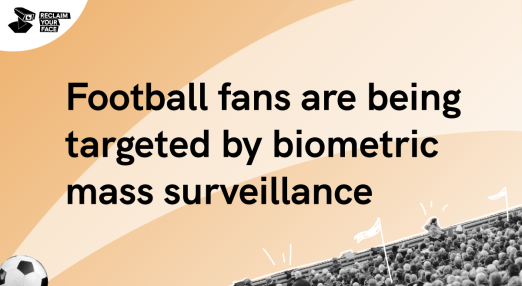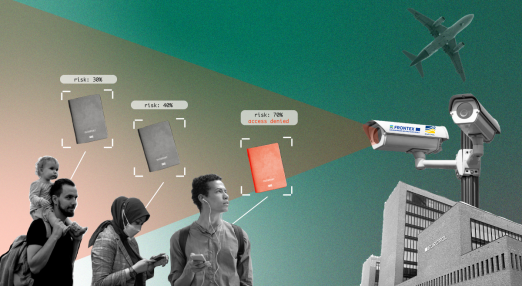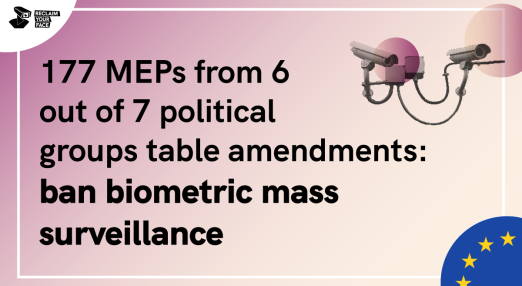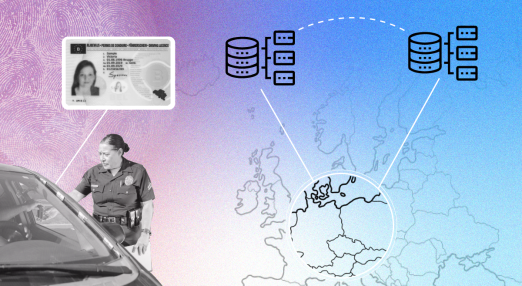Privacy and data protection
Privacy and data protection are essential for us to live, connect, work, create, organise and more. Governments and companies have long used mass surveillance for control trying to legitimise snooping for health, security or other reasons. The near-total digitisation of our lives has made it easier to control, profile and profit from our attention, data, bodies and behaviours in ways that are very difficult for us to understand and challenge. European data protection standards such as the GDPR are a good step forward but we need more to effectively ensure enforcement and protection against unlawful surveillance practices.
Filter resources
-

Rather delete than comply: how Europol snubbed data subject rights
On 8 September 2022, the European Data Protection Supervisor (EDPS) issued a decision ordering the EU law enforcement agency, Europol, to give Dutch activist Frank van der Linde access to the personal data the agency holds on him following a two-year investigation by the data protection watchdog. Findings of the inspection reveal that Europol tried to cover up the traces of the data processing and to avoid complying with the data access request by deleting van der Linde’s data.
Read more
-

Does Google accuse you of child abuse? Impossible! Right?
The legislator in Europe is working on a proposal that could force companies to scan all messages we exchange for child sexual abuse material. The goal is noble but it can very easily go wrong. And if things go wrong, you might suddenly be accused of sexually abusing children.
Read more
-

Football fans are being targeted by biometric mass surveillance
Apart from its undemocratic nature, there are many reasons why biometric mass surveillance is problematic for human rights and footabll fans’ rights.
Read more
-

Travel surveillance: member states seek to circumvent court judgment on PNR
In June this year the the Court of Justice ruled that the rules governing the EU's system for travel surveillance and passenger profiling, set out in the Passenger Name Record (PNR) Directive, must be "interpreted restrictively" to conform with fundamental rights standards. The ruling requires substantial changes to member state practices - but the Council, in time-honoured fashion, is looking at how to circumvent it, and to ensure the greatest possible freedom of manouevre for law enforcement authorities.
Read more
-

Police plans for the “future of travel” are for “a future with even more surveillance”
Plans hatched by Europol and Frontex to develop a “European System for Traveller Screening” that would require massive data processing and automated profiling have been condemned as ushering in “a future with even more surveillance” by German left MEP Cornelia Ernst, who told Statewatch that “the daily lives of millions of people” should not be shaped by “agencies that long ceased to be controllable by the public and the parliament.”
Read more
-

European Parliament calls loud and clear for a ban on biometric mass surveillance in AI Act
After our timely advocacy actions with over 70 organisations, the amendments to the IMCO - LIBE Committee Report for the Artificial Intelligence Act clearly state the need for a ban on Remote Biometric Identification. In fact, 24 individual MEPs representing 158 MEPs, demand a complete ban on biometric mass surveillance practices. Now we need to keep up the pressure at European and national levels to ensure that when the AI Act is officially passed, likely in 2023 or 2024, it bans biometric mass surveillance.
Read more
-

Gmail creates “Spam Emails”, despite CJEU judgment
On 24 August, EDRi member noyb.eu filed a complaint against Google with the French Data Protection Authority (CNIL). The tech giant has repeatedly ignored the European Court of Justice (CJEU) ruling on direct marketing emails and used its email platform Gmail to send unsolicited advertising emails without valid consent of the users.
Read more
-

EDRi-gram, 14 September
“What you’re saying is, for me to own a car and to drive, I have to submit that my photo and information are going to be used for policing purposes across the entire EU… Are we all walking around as citizens? Or are we all walking around as suspects?”. The European Commission’s Prüm II proposal fails to put in place vital safeguards designed to protect all of us from state over-reach and authoritarian mass surveillance practices. Check out more in the EDRi-gram.
Read more
-

Don’t restrict encryption before alternatives have been explored, says advisory council
The Dutch cabinet should explore alternative regulatory avenues for access to encrypted data, according to its chief advisory council for cyber security. The advice is very interesting for a number of reasons.
Read more
-

Position Paper: New EU law amplifies risks of state over-reach and mass surveillance
The EDRi network published its position paper on the proposed Regulation on automated data exchange for police cooperation (“Prüm II”). The European Commission’s Prüm II proposal fails to put in place vital safeguards designed to protect all of us from state overreach and authoritarian mass surveillance practices. In the worst case scenario, we may no longer be able to walk freely on our streets as the new law would treat large parts of the population as a criminal before proven otherwise.
Read more
-

EU Digital Services Act brings us closer to an inclusive, equitable internet
Strong enforcement of the DSA can bring human rights improvements, but real alternatives to the current dominant surveillance business model are still needed
Read more
-

EDRi-gram, 6 July 2022
“Use of digital technologies is taken as a given, and yet for a variety of reasons almost one-fifth of Czech households do not have internet access and a quarter of adults do not have a smartphone. Regrettably, in Czech media there is not much discussion about this and other challenges of the digital era.” ― Hynek Trojánek, PR coordinator for the Promoting Human Rights in the Digital Era
Read more
